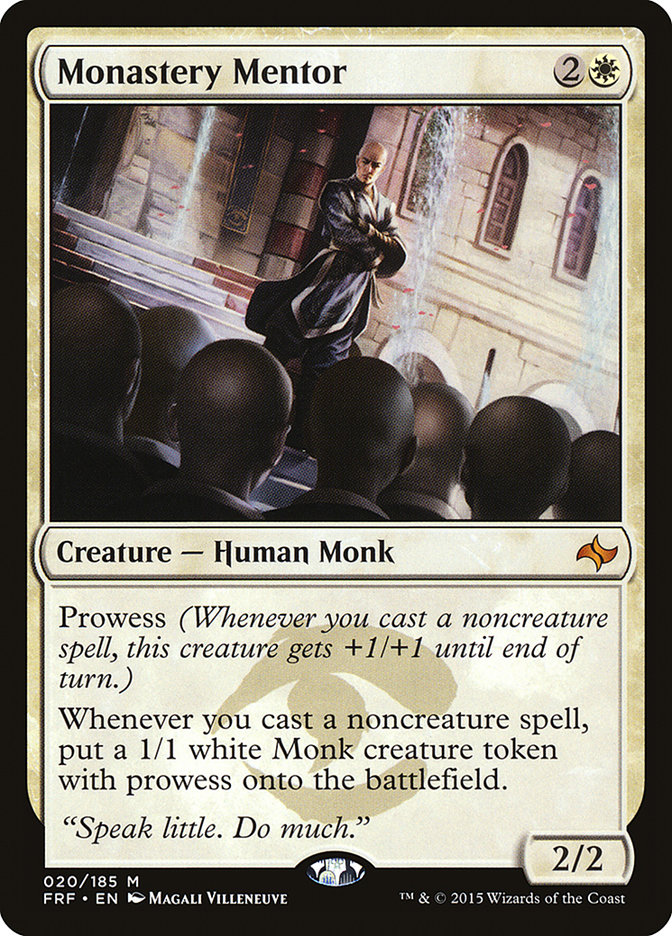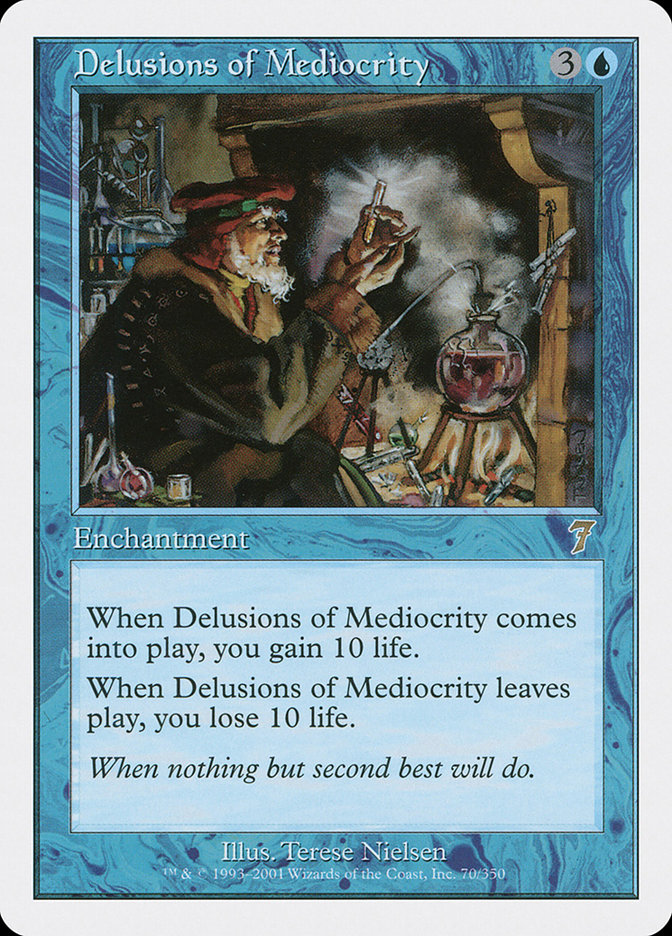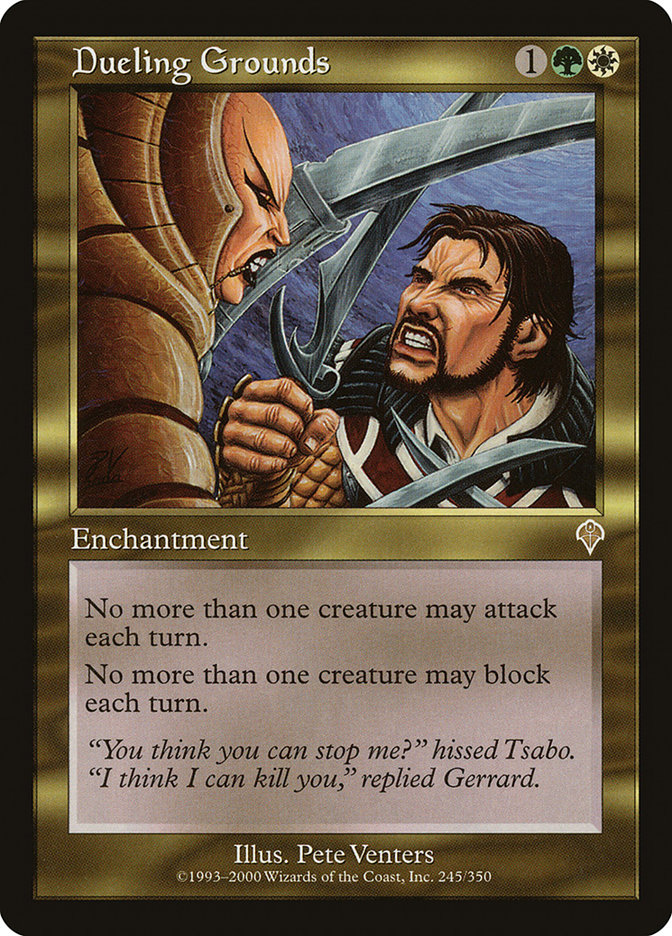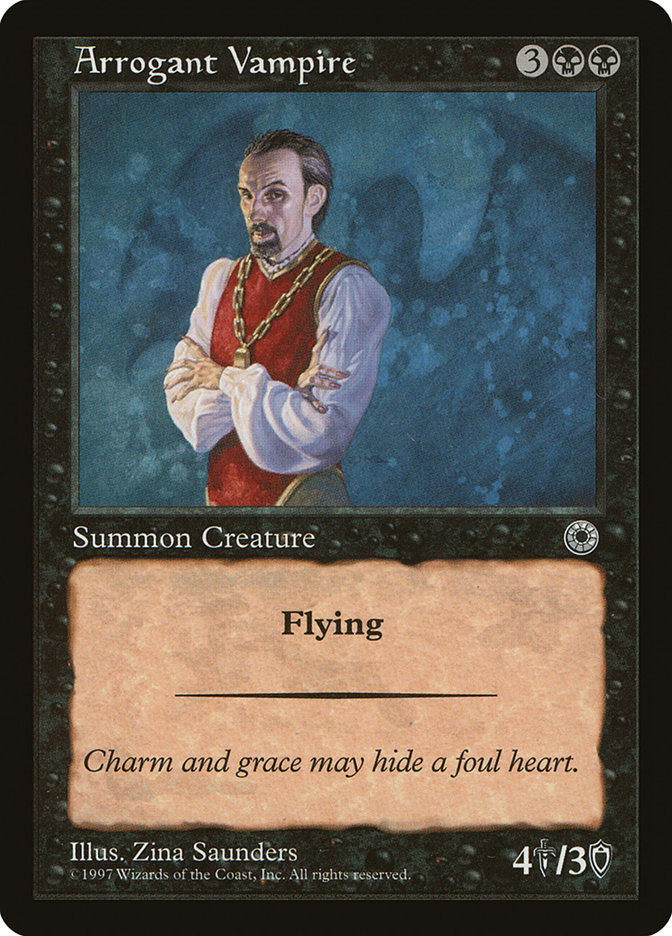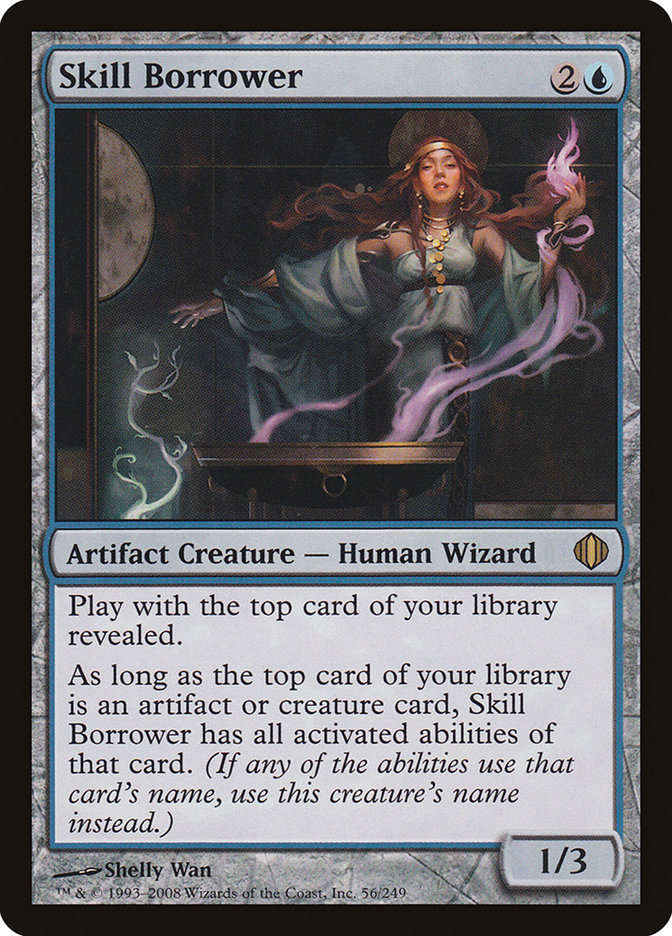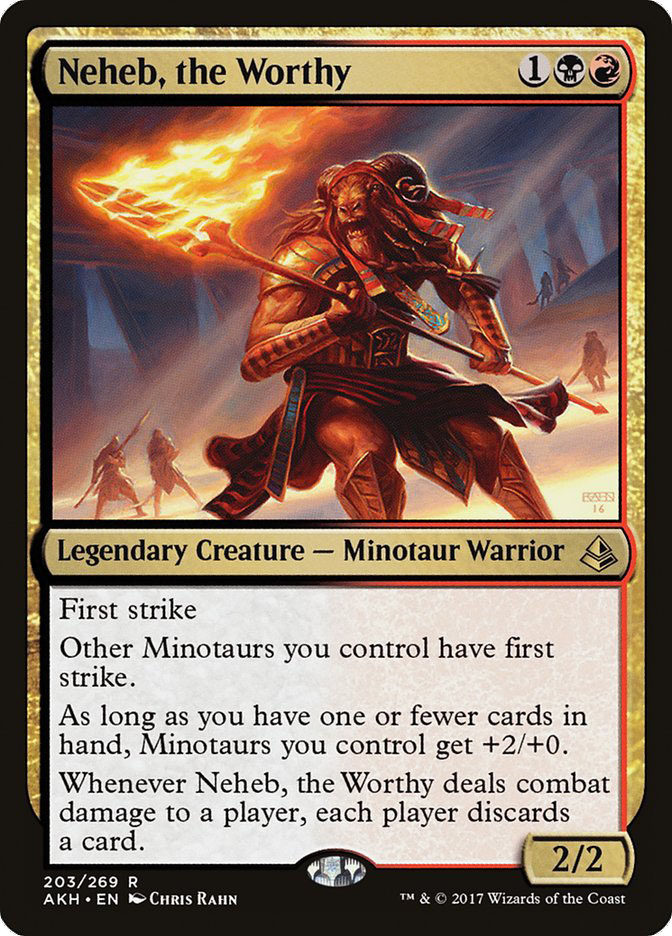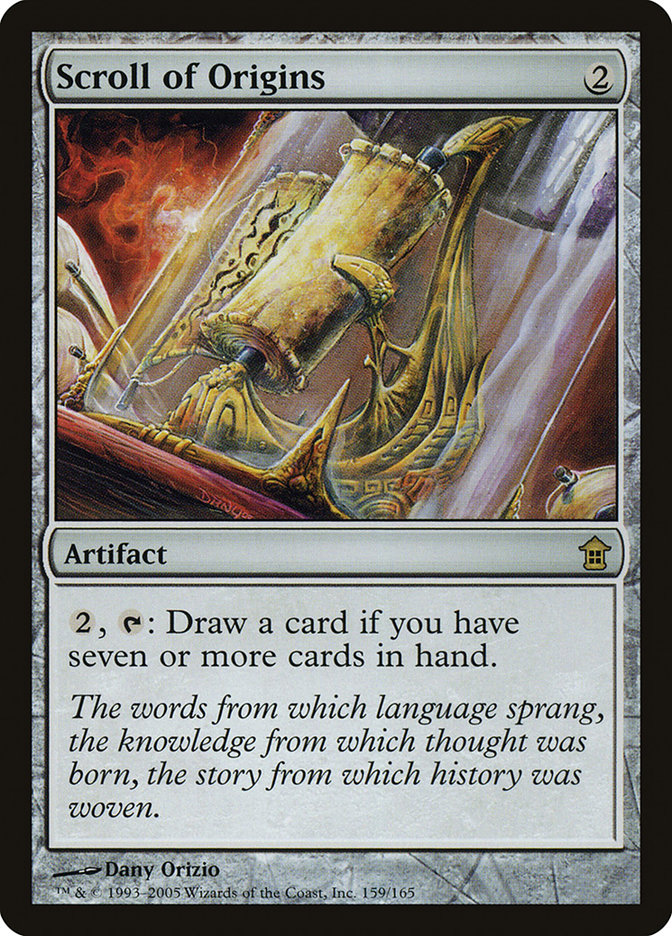One question that I used to get asked quite a bit was, “How do I become a better Magic player?” I’m arguably the last person anyone should pose that question to, but I write for StarCityGames.com, so I guess I’m qualified to at least try to field it.
When this quandary gets asked, it’s usually at the expense of someone like Brad Nelson or Owen Turtenwald. In that sense, imagine trying to teach your dog how to do the Charleston, or explaining physics to an ant.
Players at their level can offer their tips and tricks or what anecdotally worked for them, but that traditionally will be surrounded by a set of circumstances vastly different from the ones you may find yourself in. This may include battling on Magic Online for twelve to fourteen hours every day for months on end, traveling to every single event within ten hours of driving, building spreadsheets to find out deck performance, and a whole host of other tasks you must dedicate yourself to fully to achieve that Top 1% of Magic performance, and even then it’s likely not guaranteed.
That, however, isn’t remotely practical for the other 99%.
Sure, we wish it was, and many players out there like to act as if they are somehow a part of that 1% because they commit themselves in the same fashion as the most impressive players of our generation have, but that is a pitfall that will commonly lead them to more disappointment and less success overall in their Magic career.
Career. That word.
For almost every single player out there, no matter how good you are, Magic isn’t the path a player should be choosing when it comes to supporting themselves or their families. Simply playing isn’t enough. The brightest names in the entirety of Magic supplement their livelihoods by landing endorsement deals and writing for websites. This is a twofold endeavor for them. They want to share their knowledge with the world and give the players who listen a leg up on the competition, but they also want to, you know, eat at night and pay bills.
In their cases, they must use every resource they have to continue living out the dream of being Magic superstars. They are taking a perceived weakness (Magic not paying as well as we wish it would) and turning it into a strength by catering to multiple audiences, thus supplementing their bank accounts with tournament winnings, endorsements, and writing.
Now it’s a career, and now they can go about living their best lives.
It’s never just as simple as casting spells and throwing creatures out on to the battlefield. It’s never going to be. Ever.
Amplifying Your Best Qualities
Getting better at Magic is a lot like being in a support group. You have to first admit that there is a problem, so you can figure out the best solution to overcoming it. Honest self-inventories are paramount and can often lead you to more important discoveries about yourself. Years ago I made a list of traits that I possessed that made me both good and bad at Magic.
Yes, bad at Magic.
What were these qualities that could give me the success I wanted? What were these poor habits or shortcomings that were holding me back? If I wanted to get to the next level, I had to be honest with myself.
The Good
- Strong at tuning decks for a given metagame.
- Easy to get along with (good for networking).
- Open to trying new archetypes.
- Not results-oriented.
- Excellent at on-battlefield assessments and attacking/blocking.
- Very knowledgeable at when to switch gears to win a game.
- In-game chatter can help opponents have a better time playing me.
- Deep understanding of a deck I’m comfortable with in almost every matchup.
- Always willing to listen to better players.
- Can marathon testing sessions for days on end.
Of course, there are more things that made me an effective player over the years, but there were also things that held me back immensely.
The Bad
- Very average at Limited and Sealed pool deck construction.
- Easily flustered after a Game 1 loss.
- Sideboarding knowledge.
- Prone to succumbing to a bad beat.
- If I draw well? Skill. I set myself up for that. If my opponent draws well? Lucky.
- Unwilling to put Magic first.
- Would shoot down a strategy if I thought it was “bad.”
- Arrogant.
- I thought I was better than I really was.
The “bad” list is a mix of poor personality traits and areas where I could improve if I put the time in but I always felt were too difficult for me to get better at, so I pretty much never did. This led to very suspect Pro Tour drafting results, anxiety-riddled Sealed Grand Prix weekends, and losses in favorable matchups after winning a Game 1 simply because I was out-dueled after sideboarding.
These are all things that I could work on.
These are all things where I could apply my best qualities in conjunction with a will to change, so I began cross-referencing the things I put on the good list with how they could help me with the bad list. As simple as it might seem, doing this put a certain tangibility behind my awful habits and forced me to confront them with the positive ones. Now I could identify the boogeyman and start using the things I know that I do well and amplify them to put that sucker right back under the bed.
Putting Words into Practice
Some of the easier ones on “The Bad” list is surprisingly easy to help change through a deeper understanding of the character implications of “The Good.” If I’m easy to get along with and good at listening to other players, that means my personality, at its root, isn’t tied in to the arrogance I was exhibiting.
Arrogance in Magic is symptomatic of a desire to be perceived as better than you actually are. You give off a vibe of someone who knows what they’re doing and makes all the right plays, and everyone looks up to you. It fluffs your ego and eventually you start buying in to it. You become unapproachable for anyone you view or who views you as a better player. Your words can become harmful, and losses begin to feel more like them being lucky than you are playing poorly…
Wait. “If I draw well, I set myself up for that. If they draw well, it must be luck.” We put that on the bad list, didn’t we? And if they draw well at a crucial time, that becomes a bad beat, right?
These are four correlated issues that I can identify, all working in conjunction to make me a worse player.
It is at that point we can take a look at “The Good” list to see what we can do about those specific four problems. Things on our bad list such as “sideboarding issues” or “Sealed pool difficulties” can be cured by our networking capabilities. In those scenarios, when I find myself having trouble with a specific format that may not be as intuitive to me as others, I can reach out to several friends I respect as world-class Limited players and ask their advice on pick order or what spells/creatures I should try to draft or make sure they always end up in my Sealed decks. My ability to marathon testing sessions for days can overlap into Limited, giving me the option to churn out five to six drafts a day or two to three Sealed Leagues to ingrain best practices upon my repertoire.
Using the list of strengths gives us a clear vision of what we need to do to overshadow those weaknesses. By implementing them on a daily basis, those strengths should also become more potent. By talking to players consistently, I’m building friendships and deep connections. By playtesting a great deal and doggedly attacking various Limited formats, I’m keeping my skills sharp. Limited combat math and battlefield analysis will also work towards keeping my keen intuitiveness for when to switch gears and march towards closing out a game top-notch. It is only by understanding what I’m truly bad at that I can become better at it, but that also means being confident enough to admit what I’m good at…while making sure to be modest about it so that my expectations are tempered.
But how am I going to handle those four very big problems above using the “good list?”
First and foremost is defeating arrogance. If we know that reaching out to friends and better players is a strength, we must also take their words to heart. Can you really be arrogant if someone you know is a stronger player says that you’re wrong about something and need to reevaluate your mindset?
In the same regard, when I would think a strategy isn’t a good way to attack a metagame (even if I never tested it once!), I’d say that it wasn’t worth trying out. This is in direct opposition with my willingness to give new archetypes a chance when they are presented to me. How can I reconcile the two?
Trying out a new deck can be fun, exciting, and rejuvenating. How many times did you sleeve up something new and then have trouble sleeping the night before because you couldn’t wait to unleash it on your local FNM or battle with it at a PPTQ? Conversely, when you knew an established deck like Sultai Energy but read an article by Jadine Klomparens about a Winding Constrictor-based Energy deck that utilizes Hadana’s Climb, how quick would you be to accept that? Does it sound good, or maybe it’s too ridiculous for you?
In the past, I would have turned that deck down instantly because Sultai Energy is an established deck with numerous big finishes and Jadine’s deck hasn’t proved anything.
As of writing this, Aaron Barich defeated Brad Nelson handily to move to 11-1 at Grand Prix Memphis. Brad’s draw seemed a little rough, but Barich’s victory was decisive. Now how silly do I sound if I shrug off a new strategy in an already established deck without trying it first?
The third problem is probably the most common: when I did something great or drew the perfect card, it was because I was a skilled magician. When my opponent did something great or drew well, they were just lucky. The problem with that type of toxic thinking is that you’re building yourself up in your head as a nigh-infallible player and your opponent as some kind of spoiler to your greatness.
Whether you like it or not, topdecks in Magic exist, and your opponent plays those cards specifically to draw them. Both pilots are putting themselves in a position to succeed, but attributing their success to luck and yours to skill will often leave you feeling angrier about a loss. It becomes even worse if the opponent makes what you perceive as a play mistake and is still “rewarded” for it by drawing the best card at the most opportune time.
As simplistic as it sounds: that’s Magic.
When I look at the “good list,” I see a very important skill…and that’s where I want my opponents to have a good time. I want them to enjoy themselves. Years ago, I viewed them as the enemy and some kind of foe that wasn’t worthy to sit across from me. I was such an idiot, right? My opponent has every right to draw as well as I do. If a game is decided by the old “I didn’t get to play Magic,” that can leave a sour taste in our mouths. They were lucky they got to play Magic and doubly as lucky because I didn’t. There was no skill involved in their victory, and oh boy…that’s just the worst way to view things. In Magic there is a winner and a loser, but the one thing there isn’t is a victim, so don’t paint yourself as one. My strength, my desire for them to have a good time, should always beat my weakness of thinking that they didn’t deserve that win.
In the past I’ve joked about bad beat stories and how, if you’re going to tell them, there should be a certain degree of artistry involved so you can calm yourself down by making your friends laugh, but in all honesty, these are mental gymnastics that end up making you feel worse about a loss in the long run. You’re essentially putting yourself as prey to cognitive dissonance: let’s have a chuckle at this thing I’m upset about. When the laughs stop, you go back to being frustrated. That’s why you can’t let results-oriented thinking affect your play round-to-round, or even tournament-to-tournament.
Traditionally results-oriented thinking is applied to card performance and how it intersects with winning or losing. Say you play Abrade in your Mono-Red Aggro deck and in ten straight matches it is extremely bad. It doesn’t trade up with any expensive artifacts, you’re regularly on the back foot and not casting it proactively, and it underwhelms you every time it’s in your hand. Does that mean you cut it? Of course not. Abrade is the best removal spell red has available to it, and just because it didn’t play well for you in one tournament doesn’t mean you get rid of it entirely.
In this case, we’re applying that logic to losing a game of Magic and cultivating this huge bad beat story in your head. Did you draw poorly? Maybe. Perhaps you didn’t allocate your resources properly and mismanaged your spells. Did you mulligan? Sure. Sometimes mulligans are a great thing in after-sideboarding games because you have more looks at your sideboarded cards. Every negative scenario has an antithesis of positive perceptions where those bad beats can easily be turned into missed opportunities for growth and evaluation. If I’m good at not being results-oriented with specific cards that are slotted into my deck, I need to apply that strength to handling my losses better.
When you sit down to create these lists, they can be short and concise or super-long and intricate. That’s entirely up to you.
How will you adjust your game? Will you use your strengths to get better or will you continue to be a slave to your weaknesses?
Share your lists below, and maybe you’ll find other people that have the same problems. But hey…you’ll also find that other people might have the solution that you’re looking for.


